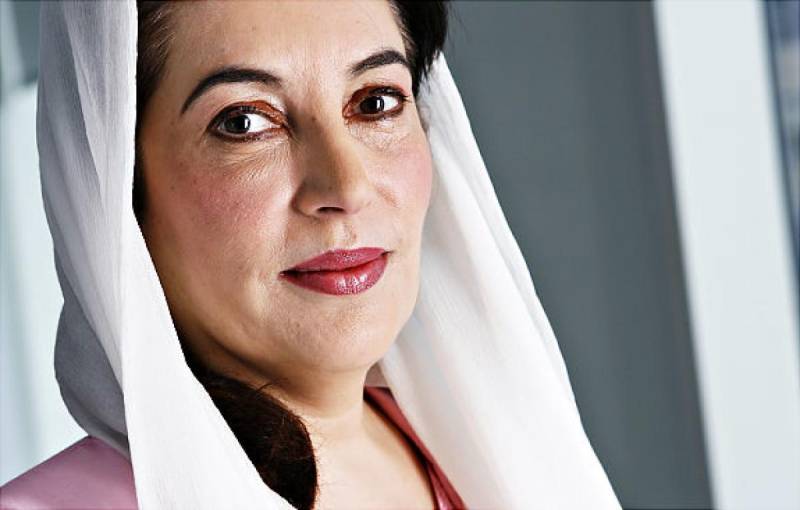Benazir Bhutto was one of the most charismatic leaders that Pakistan’s politics had produced. Since her return home in 2007, she had been the target of at least three assassination attempts by elements linked to al Qaeda and the Taliban. She staged a series of mass meetings across Pakistan. She did that despite her aides’ appeals for caution in the wake of a double suicide bombing that narrowly failed to kill her on the night of her return from exile in October 2007 which killed more than 130 people.
“We will continue to meet the public,” she said as she visited survivors of the bombings at a Karachi hospital. “We will not be deterred. One cannot take part in democratic life from behind walls, I am not like bin Laden or Mullah Omar, to run and hide in a cave. I have to be with my people. I know death comes. I’ve seen too much death, young death.”
She was one courageous, secular and liberal female leader Pakistan will always be proud of, a daughter who knew the tribulations of cloistered confinement, a sister who outshone her brothers by carrying forward her father’s legacy, a young bride who supported her husband, a mother who did not let pregnancy get in the way of politics, a leader who could easily move with her people regardless of their race, religion, gender or status.
In 1988 she became the most powerful symbol in contemporary politics for women, as she became the first elected female head of the State in Muslim World. She exemplified the normalisation of women in politics and immediately countered invisibility of women heightened under Zia’s military rule. She lifted press censorship.
When I met Mohtarmah Benazir Bhutto in December 1989 just a month before Bakhtawar’s birth she was coming back from Multan after monitoring military exercises. I asked her why is she soft on Pakistani print media (in Zia’s regime newspapers were just pro-Zia while in her times it was totally opposite). She replied:
“This is because of the suppression of 11 years of brutal military rule. Let them take out their frustration. This is the difference between democracy and dictatorship. We are here to strengthen democracy.”
She left me speechless but in another interview she confessed:
“I can deal with political differences, but how do you deal with it when someone says I don’t like you because you’re a woman and you have taken a man’s place? I found that my opponents reduced themselves to verbal abuse rather than discuss issues. My identity comes ultimately from being a woman and I felt that my life has to make a difference to the lives of other women. I was brought up to believe that a woman can do anything that a man can.”
Muslim extremists killed Benazir Bhutto. But they shouldn’t be allowed to kill Pakistan’s hopes for democracy. In her willingness to meet a violent death, she may give courage to other women and convince them that it’s worth risking their lives for the future generation.
More power to ladies like Asma Jahangir, Bushra Gohar, Sherry Rehman, Hina Rabbani Khar, Saman Jaffery, Shireen Mazari, Nafisa Shah, Farahnaz Isphahani, Maryam Nawaz, Fauzia Kasuri, Marvi Memon, Sara Tarar, Sharmila Farooqi, Syeda Shehla Raza and many more...
Today is Mohtarma Benazir Bhutto’s birthday. May I request you all to celebrate her by celebrating what she said in December, 1988:
“We gather together to celebrate freedom, to celebrate democracy, to celebrate the three most beautiful words in the English language: We the people.”
Happy Birthday, BB.






